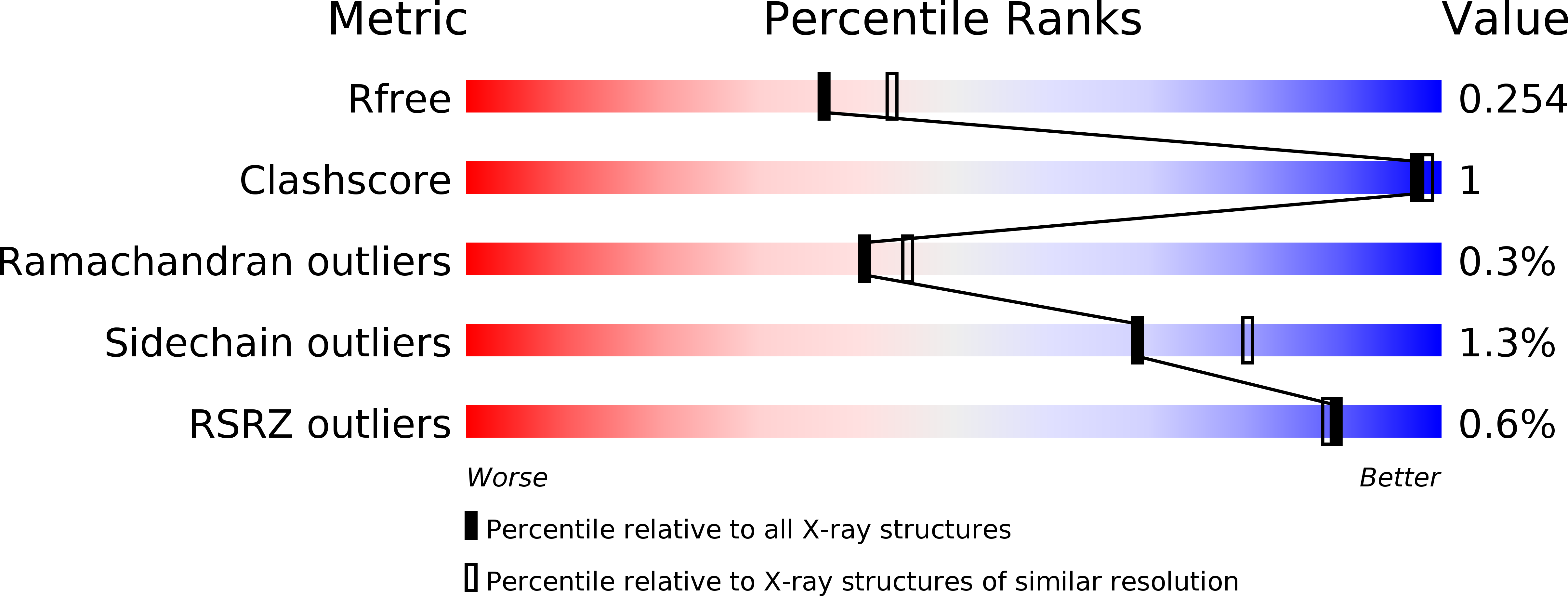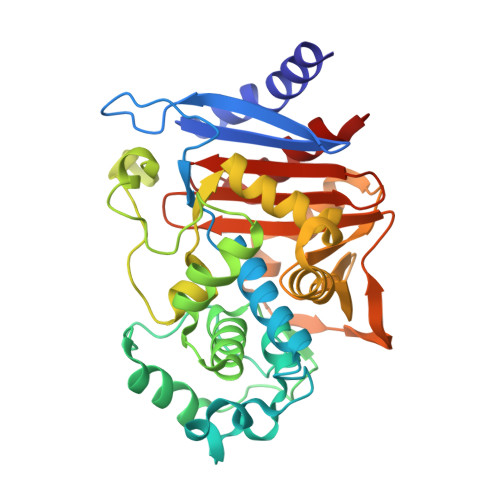Studies on the inhibition of AmpC and other beta-lactamases by cyclic boronates.
Cahill, S.T., Tyrrell, J.M., Navratilova, I.H., Calvopina, K., Robinson, S.W., Lohans, C.T., McDonough, M.A., Cain, R., Fishwick, C.W.G., Avison, M.B., Walsh, T.R., Schofield, C.J., Brem, J.(2019) Biochim Biophys Acta Gen Subj 1863: 742-748
- PubMed: 30738906
- DOI: https://doi.org/10.1016/j.bbagen.2019.02.004
- Primary Citation of Related Structures:
6I30 - PubMed Abstract:
The β-lactam antibiotics represent the most successful drug class for treatment of bacterial infections. Resistance to them, importantly via production of β-lactamases, which collectively are able to hydrolyse all classes of β-lactams, threatens their continued widespread use. Bicyclic boronates show potential as broad spectrum inhibitors of the mechanistically distinct serine- (SBL) and metallo- (MBL) β-lactamase families. Using biophysical methods, including crystallographic analysis, we have investigated the binding mode of bicyclic boronates to clinically important β-lactamases. Induction experiments and agar-based MIC screening against MDR-Enterobacteriaceae (n = 132) were used to evaluate induction properties and the in vitro efficacy of a bicyclic boronate in combination with meropenem. Crystallographic analysis of a bicyclic boronate in complex with AmpC from Pseudomonas aeruginosa reveals it binds to form a tetrahedral boronate species. Microbiological studies on the clinical coverage (in combination with meropenem) and induction of β-lactamases by bicyclic boronates further support the promise of such compounds as broad spectrum β-lactamase inhibitors. Together with reported studies on the structural basis of their inhibition of class A, B and D β-lactamases, biophysical studies, including crystallographic analysis, support the proposal that bicyclic boronates mimic tetrahedral intermediates common to SBL and MBL catalysis. Bicyclic boronates are a new generation of broad spectrum inhibitors of both SBLs and MBLs.
Organizational Affiliation:
Department of Chemistry, University of Oxford, Chemistry Research Laboratory, 12 Mansfield Road, Oxford OX1 3TA, United Kingdom.















